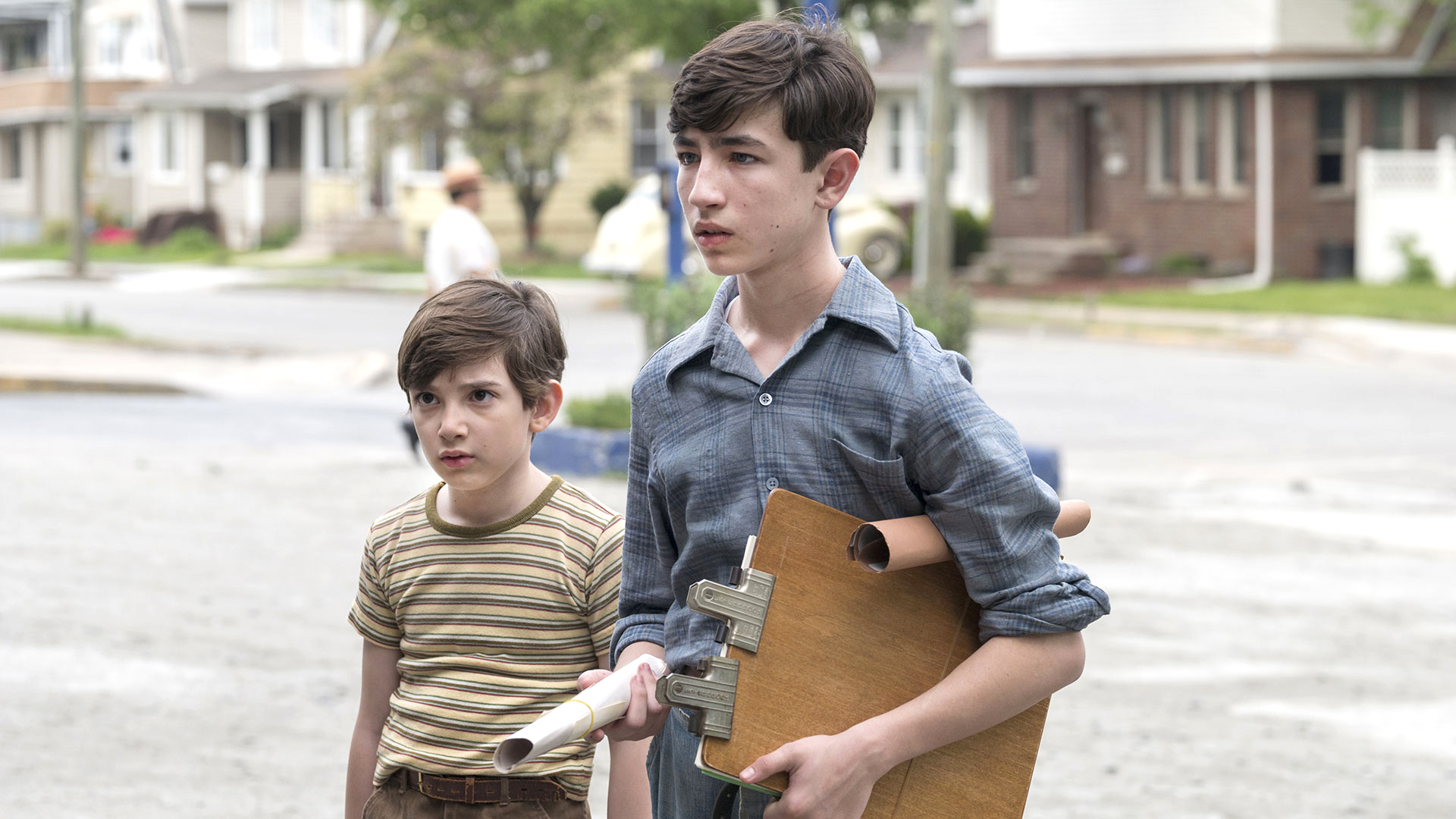(THIS ARTICLE IS MACHINE TRANSLATED by Google from Norwegian)
In the previous issue of MODERN TIMES I wrote about Netflix series Messiah, which deals with how Jesus might have been received if he returned in our time. Not least, science-fiction stories are often based on thought experiments that can be formulated with an introductory "what if", I wrote then – despite the fact that the series in question does not necessarily fall within this genre.
Though thought experiments and speculations are an essential part of the nature of fiction in general. Nonetheless, this applies to some types of fiction to a greater extent than others, especially those that are classified as "speculative fiction". The term includes science fiction, fantasy and so-called "alternative history" – stories that are based on whether history had taken a different direction. In the latter sub-category you will find the fresh HBO series The Plot Against America, which is based on Philip Roth's 2004 novel of the same name.
Isolationism and anti-Semitism
The series takes place in the United States in the early 40s and is about a Jewish family in Newark, New Jersey. In the alternate story described here, aviator and heroine Charles Lindbergh wins the presidential election over Franklin D. Roosevelt in 1940. Under the slogan "America First" (taken from an existing movement at this time), Lindbergh is concerned about keeping the United States out of it. ongoing war and maintains diplomatic relations with Germany. His anti-Semitic attitudes gradually characterize the country's politics, attitudes he should also have promoted in reality. As he also argued against the US involvement in the war – until he turned with the attack on Pearl Harbor.

A few months before Philip Roth died in 2018, he told i an interview with The New York Times that the novel was not meant as a political allegory of the contemporary. Still, the author had to admit that the parallels to today's United States were striking, with a democratically elected president praising the dictators of other countries and promoting untrue stories, isolationism and xenophobia. Not to mention fascist tendencies, one might add. In the interview, however, Roth emphasized that the real Lindbergh – unlike Donald Trump – was a real hero.
Societal issues
Lately, the miniseries format has regained popularity, perhaps especially with the success of HBO's appalling and exceptionally well-crafted Chernobyl. It is also one of many recent television series that deal with current political issues, even if they take place in the past. IN Chernobyl the actual events are admittedly very authentically reproduced, without the alternative history poetry found The Plot Against America. Social policy issues are also central to longer series such as speculative fiction The Handmaid's Tale and the drama Succession about a media group family, as well as the Norwegian miniseries 22. July and so far a season long witch Hunt - to mention some.
Long TV shows provide better opportunities to delve into characters and themes, but are at risk of repetitive idle as they keep the viewer hooked in season after season. The miniseries' dramaturgy, for its part, is a golden middle ground between the feature film and the long series. Not least, this format seems well suited for adapting novels, all the while feature films often have to omit painfully many elements from their literary submissions – while novels tend to have more finished stories than the longer series require.
Expensive production
Therefore, it seems sensible that series creators David Simon and Ed Burns just chose the miniseries format when they were to embark on a literary adaptation for the first time. Simon and Burns have previously collaborated on, among other things, the groundbreaking The Wire and the miniseries Generation Kill, both of which were series with a high degree of social relevance.
I The Plot Against America they have moved away from the documentary that characterized these series. The new series is obviously a very lavish production, with elegant camera movement and images in warm brown tones – which has almost become a convention in historical dramas. It is undeniably delicious, but it could have been that the story had gotten even more nerve with a more hand-held and "real-life" design language.
Frighteningly relevant
Although it only consists of six hour-long episodes, it does take some time before The Plot Against America really getting started. Where the novel is told through the youngest son Philip, the adaptation between several of the family members alternates, in keeping with the television series' tradition of having more than one central character. The family's various ways of dealing with the political situation – from the staunchly oppositional family father (Morgan Spector) to his sister-in-law (Winona Ryder) who involves himself with a regime-friendly rabbi (John Turturro) – will eventually create divisions between them.
The Plot Against America is frighteningly relevant to our time.
However, the slow build-up has certainly determined its purpose. Not just because we get to know the family well, who get to feel the hostile attitudes and actions of the authorities – as well as the rest of the population – on the body. But also because it shows how fascist ideologies tend to gain a foothold in practice: This does not happen overnight, but gradually, so that for many people it is perceived as correct and natural. And it is precisely this aspect that does The Plot Against America so scary relevant to our time.
The Plot Against America is available on HBO Nordic,
The first episode premiered March 17. New episodes are released on Thursdays.






